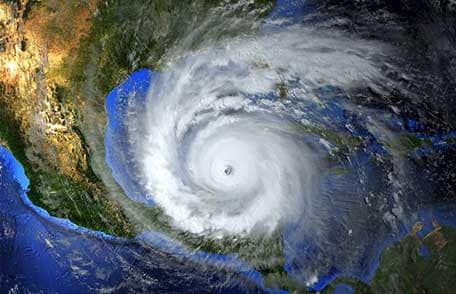Preparing for a Hurricane or Tropical Storm

You can’t stop a tropical storm or hurricane, but you can take steps now to protect yourself and your family.
If you live in areas at risk, the Centers for Disease Control and Prevention (CDC) encourages you to be prepared for hurricane season. The Atlantic hurricane season is June 1 through November 30 each year. It’s always important to be prepared for a hurricane.
Preparing for a Hurricane
Follow these important hurricane preparedness tips from CDC:
- Prepare for a hurricane: Take basic steps now to ensure your safety should a storm hit.
- Get emergency supplies: Stock your home and your car with supplies.
- Make a plan: Create a family disaster plan.
- Prepare to evacuate: Never ignore an evacuation order.
- Protect older adults: Understand older adult health and medical concerns.
- Protect your pets: Ensure your pet’s safety before, during, and after a hurricane.
CDC recommends that you print important documents (e.g., emergency phone numbers, insurance information) before a hurricane strikes. Power outages during and after a hurricane can prevent you from accessing information online when you most need it.
Preparing now can help keep you and your family safe.
Staying Safe After a Hurricane
In addition to preparing for a hurricane, it’s important to take steps to stay safe after a hurricane is over, for example:
- Avoid flooded areas: Take precautions before, during, and after a flood.
- Prevent carbon monoxide (CO) poisoning after the storm: Ensure your CO detector has working batteries. Place generators outside at least 20 feet from any door, window, or vent.
Visit Stay Safe After a Hurricane or Other Tropical Storm for more tips on staying safe after a hurricane.
After you have read these tips, please review the other resources available on the CDC Hurricanes website.